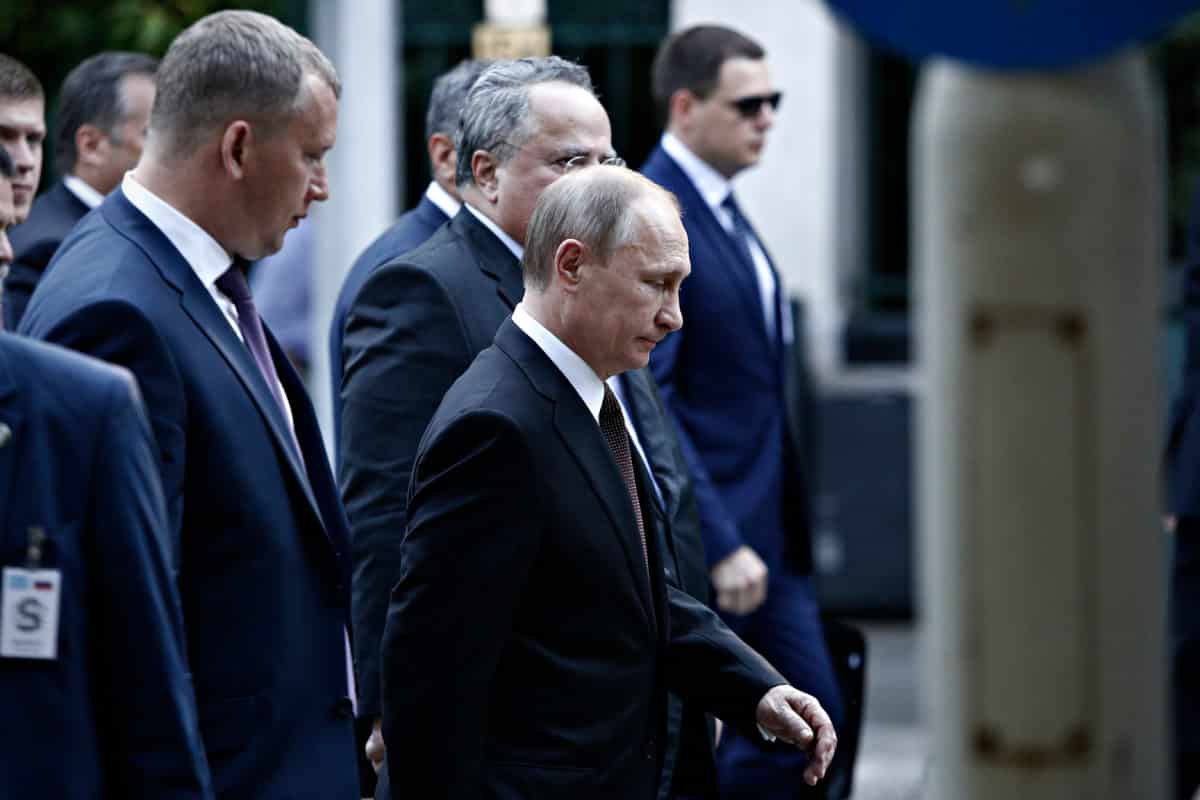
Russia Economy News: Bracing For More Sanctions
The post Russia Economy News: Bracing For More Sanctions appeared first on FinanceBrokerage.

Elvira Nabiullina, Russia economy news bearer and the mastermind behind Putin’s economic strategies, recently delivered a stark message in an interview about the country’s economic future. Buckle up, as more sanctions could be on the horizon, and the consequences might be more severe than ever.
While Russia has weathered the economic storms of the last two years, Nabiullina cautions against unwarranted confidence. Despite the country’s apparent resilience, she warns that the pressure from sanctions may intensify. Thus, the nation should prepare for the economic turbulence that could lie ahead.
Nabiullina’s ominous prediction comes 22 months after Russia’s invasion of Ukraine, which triggered sweeping sanctions. Notably, throughout the interview, she refrained from mentioning Ukraine or the ongoing war. Instead, she focused on the need for Russia to brace itself for potential economic aftershocks.
Nabiullina has been at the helm of Russia’s central bank since 2013. She also has a storied history of navigating economic challenges. From steering through the Global Financial Crisis of 2007 to 2008 to managing the fallout from sanctions following the annexation of Crimea in 2014, the 60-year-old technocrat has been a linchpin in stabilizing Russia’s economy.
Moreover, Nabiullina is recognized for her instrumental role in stabilizing Russia’s economy despite facing challenges like sweeping sanctions, a significant brain drain, and soaring inflation. Her policy-making is crucial in supporting President Vladimir Putin’s wartime economic agenda.
The European Union rolled out its 12th sanctions package against Russia earlier this month, complemented by further tightening of sanctions by the United States. Nabiullina acknowledged the challenges posed by these measures, including issues with cross-border payments and weak investor sentiment amid the trade restrictions.
However, she remains optimistic, pointing out that Russia’s economy is adapting quickly to sanctions and undergoing restructuring. She also noted the swift adjustment of the business sector to the market nature of the economy. Still, challenges persist, including cross-border payment issues and tepid investor confidence in the face of trade restrictions.
Despite challenges, Nabiullina predicted that profits at Russian banks would remain positive next year, crediting the performance to sustained economic activity. This optimism contrasts with scepticism from some quarters, such as economist Igor Lipsits, who recently claimed that “the real situation is bad” for the country’s economy.
While official reports suggest a robust 5.5% GDP growth in the third quarter of this year, the authenticity of Russia’s economic statistics remains questionable. Observers argue that much of the reported growth is fueled by massive military and government spending. As uncertainties loom, Nabiullina’s warning becomes a crucial signal for individuals and businesses to prepare for a potentially turbulent economic landscape.
As Russia navigates the uncertain waters of potential sanctions, it’s clear that Nabiullina’s insights are critical for businesses and individuals alike. In this intricate dance of economic adaptation, the import/export dynamics of imports to Russia will undoubtedly play a pivotal role. Stay tuned for more twists and turns in the ever-evolving saga of Russia’s economy.
The post Russia Economy News: Bracing For More Sanctions appeared first on FinanceBrokerage.
Stock futures climbed on Wednesday, driven by strong performances from Salesforce and Marvell Technology, following upbeat quarterly earnings. Futures tied to the Dow Jones Industrial Average rose by 215 points (0.5%), while S&P 500 futures gained 0.3%, and Nasdaq-100 futures
Stock futures are trading slightly lower Monday morning as investors gear up for the final month of 2024. S&P 500 futures slipped 0.18%, alongside declines in Dow Jones Industrial Average futures and Nasdaq 100 futures, which dropped 0.13% and 0.17%,
The opening of a Starbucks near South Korea’s Demilitarized Zone (DMZ) highlights the intersection of global commerce and geopolitics, showcasing the brand’s ability to establish itself even in politically sensitive locations. Positioned in an observatory in Gimpo, just 1.4 km
